NTFP-EP, AFoCO hold regional CBNE development workshop
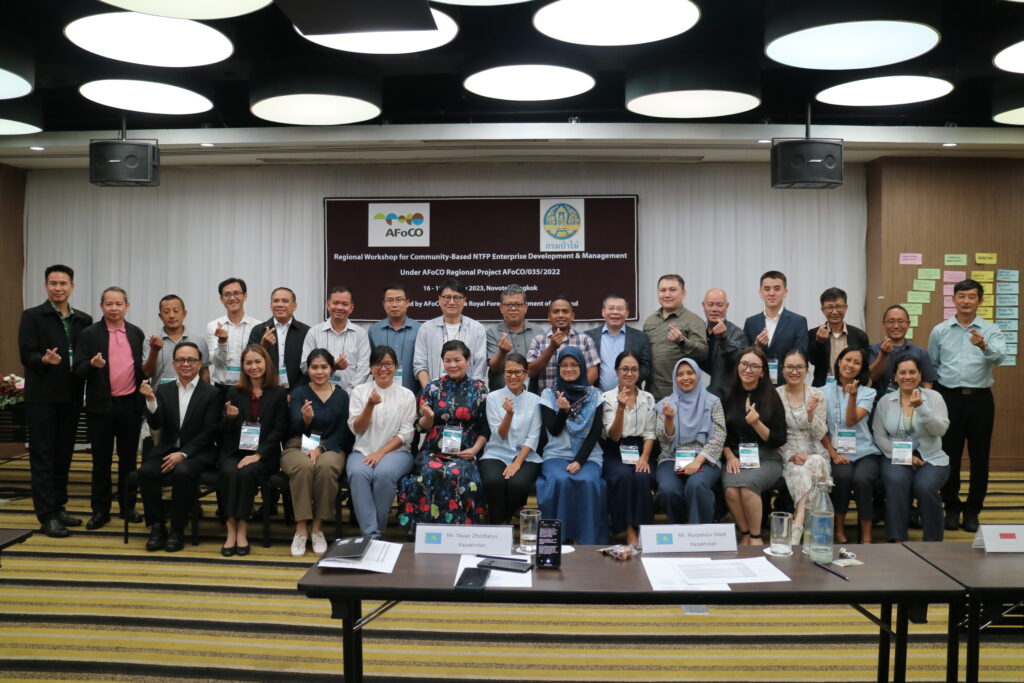
Representatives from 11 member countries of the Asian Forest Cooperation Organization (AFoCO) convened for a four-day Regional Workshop for Community-based NTFP Enterprise (CBNE) Development for AFoCO/035/2022 from 16-19 January 2023 in Bangkok, Thailand.
The workshop, organized by the AFoCO Secretariat led by NTFP Regional Manager Dr. Park Jung Hwan and the Royal Forest Department of Thailand led by Dr. Preecha Onprasert, included 22 participants from Bhutan, Cambodia, Indonesia, Kazakhstan, Lao PDR, Mongolia, Myanmar, Philippines, Thailand, Timor Leste and Vietnam.
The Regional Workshop is part of the initial activities of the AFoCO Regional NTFP project entitled “Improved local community livelihoods through increased income from non-timber forest products (NTFP): Modeling scalable community-based enterprises in Asia”. Joined by forestry department officials, country managers, and project staff, it is the first regional activity of the project for Community-based NTFP Enterprise Development and Management.
“It was a bit challenging yet exciting to be given such an opportunity to impart my knowledge and experience in developing and managing community-based NTFP enterprises in the Philippines,” said Maia G. Urata, one of the resource speakers from NTFP-EP Philippines.
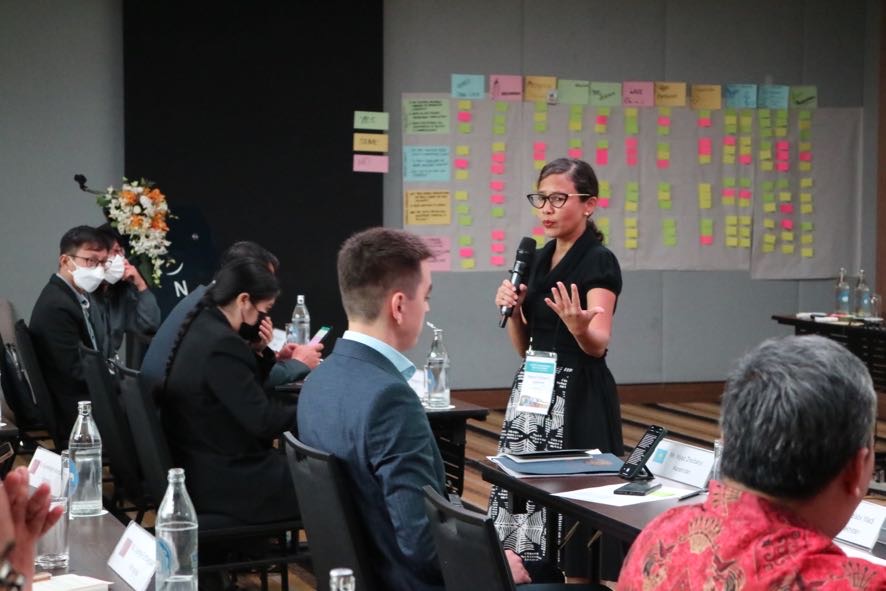
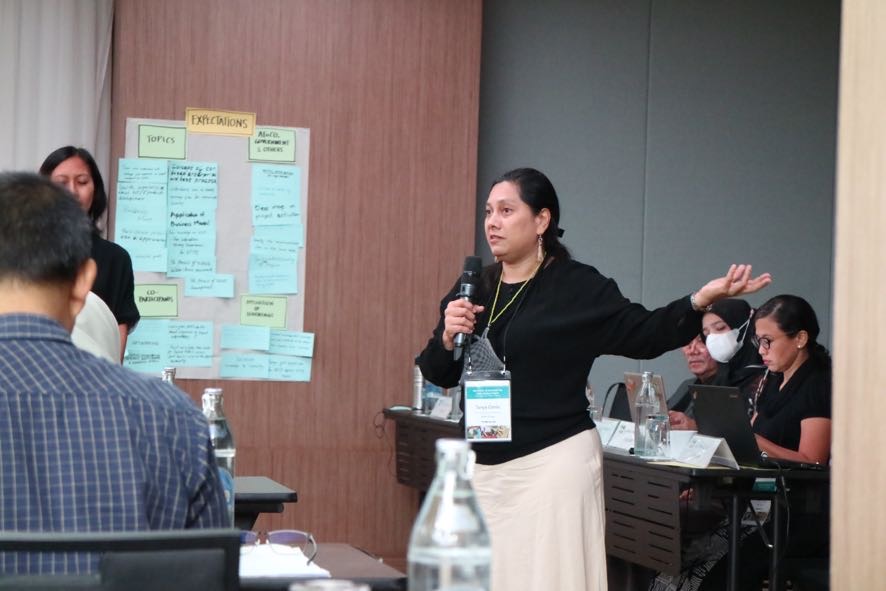
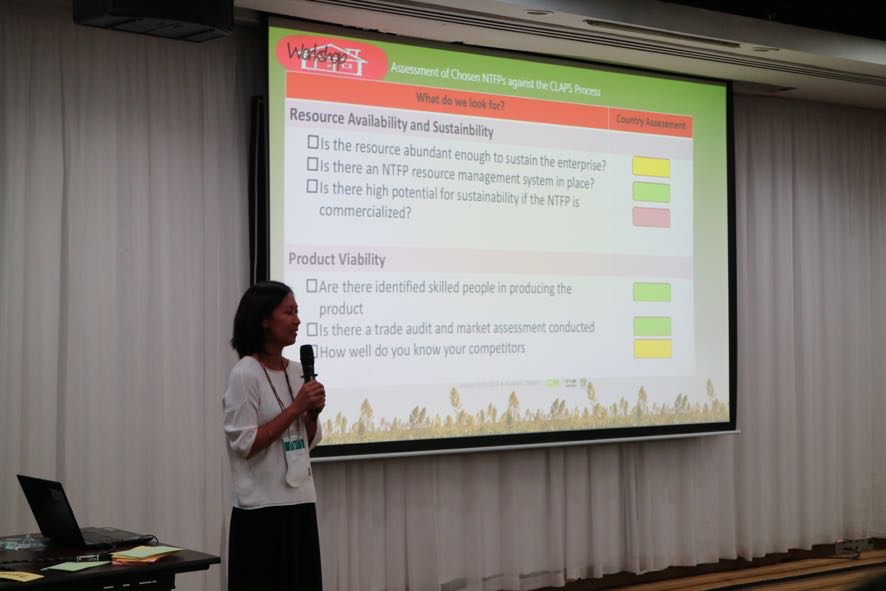

The event also featured Crissy Guerrero, Tanya Conlu, and Hanna Mila Hasianna as resource speakers with Popoy Tanedo in a supporting capacity.
The workshop-training sought to enhance the participants’ appreciation, knowledge, and understanding of the principles of CBNE development and management. Participants are expected to use the new knowledge to strategize steps in starting their NTFP projects. Some participants had limited experience on the subject matter, hence the session started with leveling-off of the terms and definitions and elements that support effective CBNE development.
The first session focused the CBNE Framework, Definitions, Elements, and Processes followed by the framework of Community Livelihood Appraisal and Product Scanning or CLAPS. CLAPS is a systematic assessment designed to aid communities in making decisions for their planned enterprises.
The next session, Basic Enterprise Development, provided an overview of business management with the basic components: Marketing, Production, Organizational Management and Finance.
Another session was the Business Model Canvas which helps CBNEs gather information to develop and conceptualize business ideas in a more strategic approach using the elements of a business model.
The last session was about how CBNE community partners in the Philippines underwent the steps of the CBNE Process: from Business Planning to Launching.
Although topics were not tackled in-depth due to time limitations, real life experiences were shared as examples with integrated participatory and interactive games during the sessions. These simulated the application of learnings for better appreciation.
“This is the second time I have attended an NTFP-EP training. Sometimes during the training, I feel it is a bit difficult but then when I return home and apply it to my situation, I see it is very useful,” said Dr Ei Ei Hlaing of the Forest Research Institute in Myanmar.
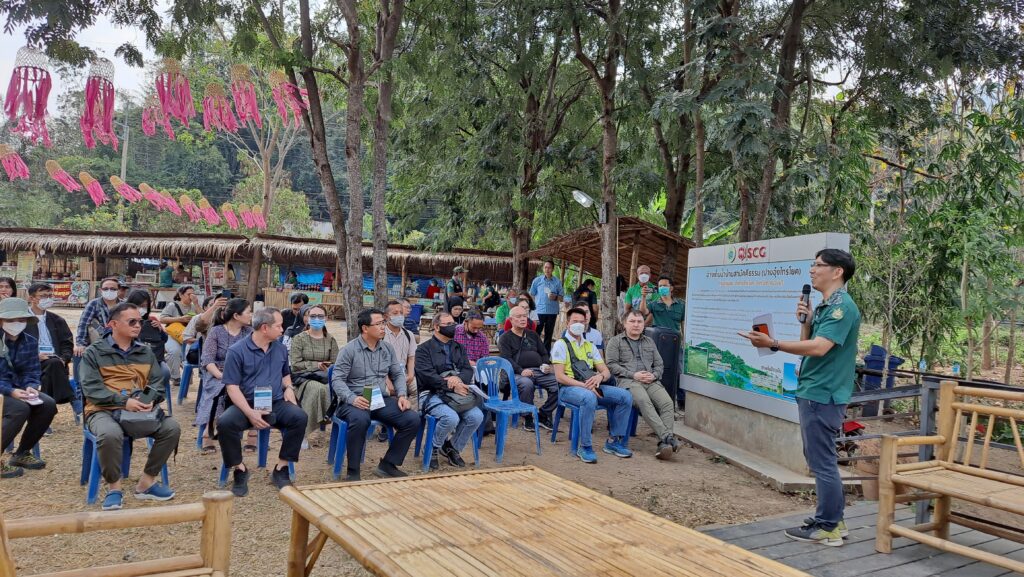
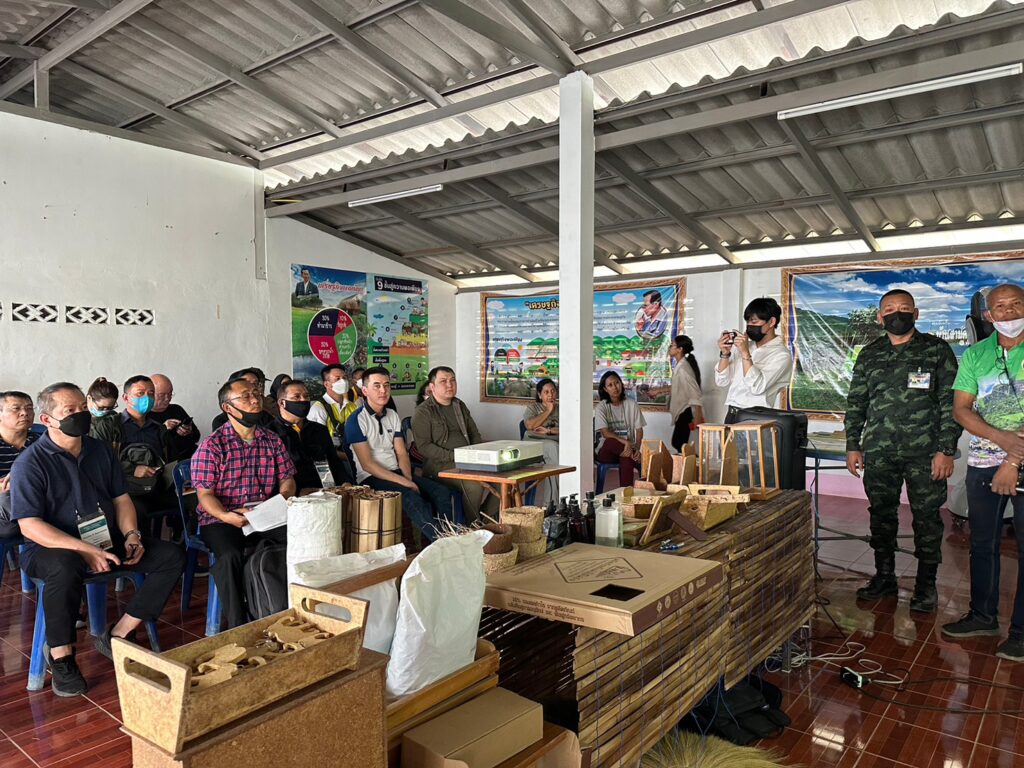
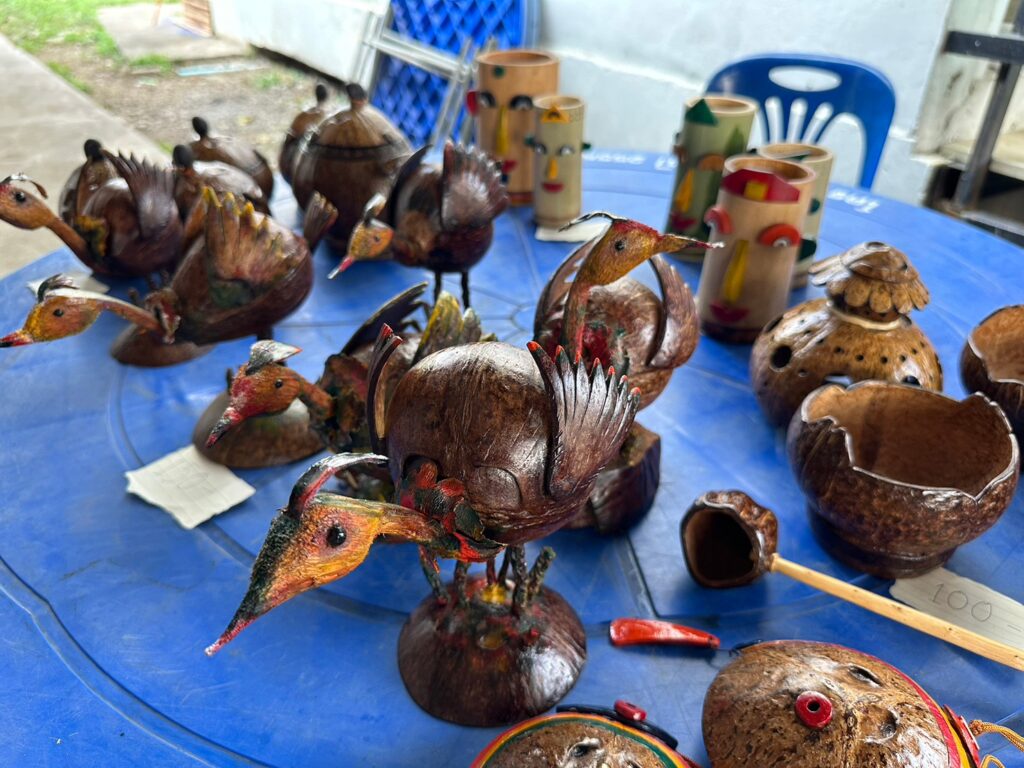

The participants visited Sai Yok District, Kanchanaburi Province to witness the efforts of the Ban Samakkhi Tham Community Forest to utilize their bamboo and established a community-based enterprise. The community manufactures bamboo-based products and innovated waste and residuals to create value-added products like particleboards used as tables, frames, and other items.
“As we had a short time during the visit, we took advantage of doing interviews and observed during the community presentation and demonstration of the production. I admired the collaborative management that led to the community’s effort in conserving their forest and how they sustainably use their resources to generate income for the community,” said Urata.
The country teams are now in the process of updating their plans on supporting CBNE enterprises in their respective countries. The organizers hope that the training will be useful for the forestry extension workers and the CBNEs that will be targeted for this project.
Article text by Maia Urata of NTFP-EP Philippines, with contributions from Tanya Conlu and Crissy Guerrero of NTFP-EP Asia. With photos from Ji Yea Cha of AFoCO and Siriluck Thamannu of Royal Forest Department Thailand.



